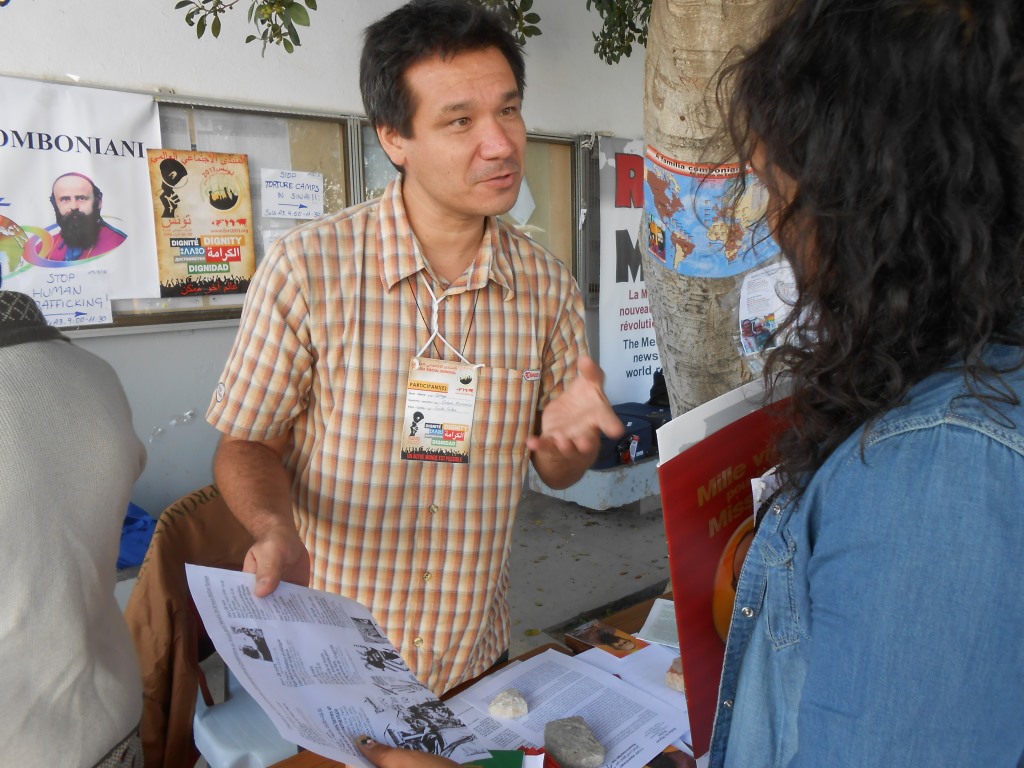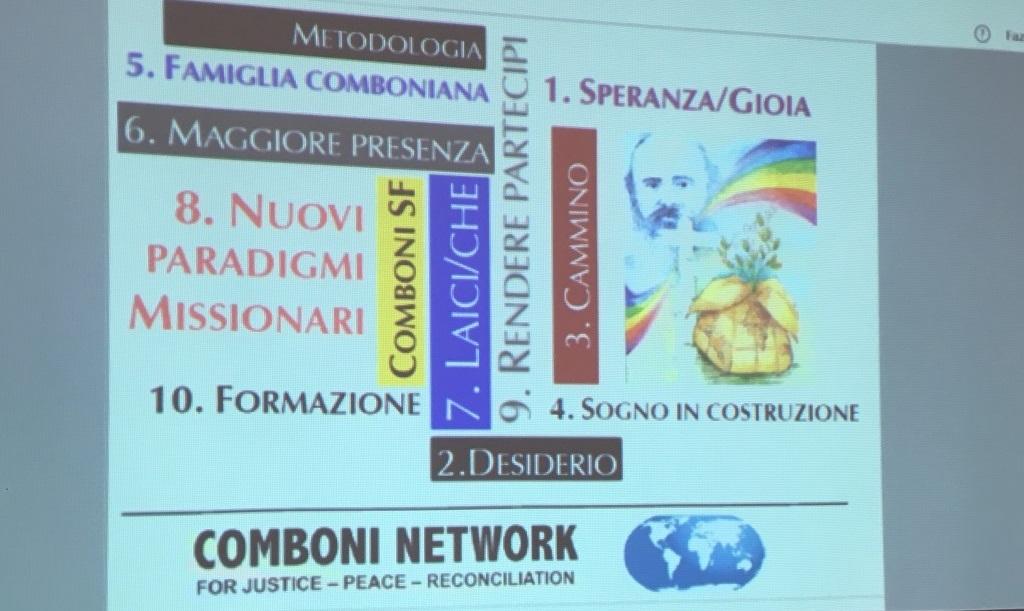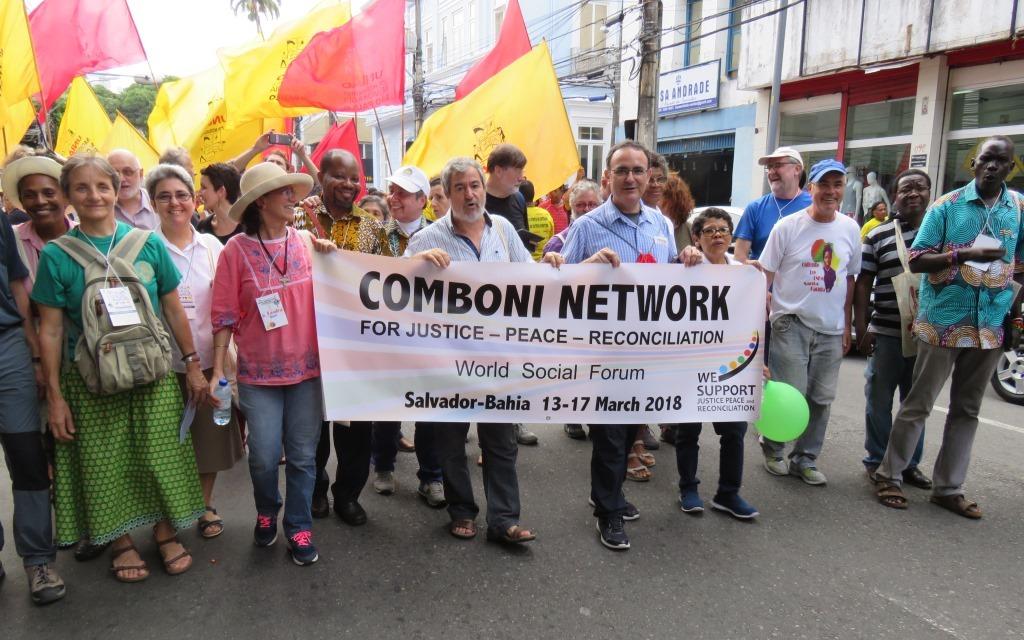Daniel Comboni
Misjonarze Kombonianie
Obszar instytucjonalny
Inne linki
Newsletter
Rome, Monday, April 22, 2013
“Evangelization includes, as integral aspects, the proclamation of Jesus and his Gospel as well as being engaged in justice and peace issues. Faith in Jesus without social commitment becomes a dead religion… This is the basis for a sound spirituality and our relations with civil society”, wrote Fr. Gregor Bog-Dong Schmidt (in the picture), Comboni missionary in South Sudan, in the context of the last World Social Forum held from 26 to 30 March in Tunisia.
God is on the side of the lowly and marginalized in this world (Lk 1:50-53), he hears the cry of his people (Ex 2). The prophetic tradition in the Old Testament constantly emphasizes the duty to uphold justice for those who have no power. According to Jeremiah, only the one who defends the cause of the poor and the needy can claim to know God (Jer 22:16). This message goes against a form of religion that separates the relation with God from our dealings with people. A just life is the visible side of an authentic faith and love towards God. In the New Testament, John writes that God’s love is not present in those who refuse to help a brother in need (1 Jn 3:17). On this basis, we engage as Christians in the struggle for a society that is just and create alliances with groups and individuals at the grass-root level, even with those who don’t share our faith or might be opposed to the Church.
Although we find common interests and share common concerns with the secular society and other religions, and we can fight together for common causes, the Christian analysis of the state of the world differs from other viewpoints. We have to listen with respect and understand those other viewpoints, but we are also called to share our convictions and witness to our faith and its implications if God really has revealed himself in Jesus Christ. The Compendium of the Social Doctrine of the Catholic Church can be a tool and a starting point in that dialogue with our partners. Basically, there are two aspects that are particular “Christian”. They regard the question why injustice and oppression are persistent and how to overcome them.
The secular world can make a social analysis of conflicts and oppressive structures – and the Church has to take into account this analysis to form a qualified opinion. But as Christians we know that the (visible) course of human history is only one aspect of the whole picture. We have to add the following: It is alienation from God that leads to alienation from self, from others and from creation. Human dignity is not respected if people don’t see the image of God in another person. There will never be a just society and a respectful use of creation unless the alienation from God is healed. Furthermore, it is a Christian conviction that the inalienable dignity of every human being is founded in God as creator of all. Those who interpret what is happening without transcending human existence may come to the conclusion that it is the right of the stronger to take advantage of the weaker, as some ideologies have done.
Regarding the question on how to create a just and peaceful world, people of goodwill in secular society will propose education, reform (or even revolution). Again, the Church has to study those proposals and incorporate its positive aspects in her work. But authentic justice and peace – the values of the Kingdom of God – only can be attained through conversion. Pope John Paul II writes in Redemptoris Missio (no. 11): “True liberation consists in opening oneself to the love of Christ. In him, and only in him, are we set free from all alienation and doubt, from slavery to the power of sin and death.” This statement is based on the gospel of John: “Very truly, I tell you, everyone who commits sin is a slave to sin… So if the Son makes you free, you will be free indeed.” (John 8:34-36) Jesus liberates through his love so that people may love each other. In following Him it is possible to establish non-oppressive and non-abusive relationships. This is the “good news” of the New Testament and our witness to the world.
Evangelization includes, as integral aspects, the proclamation of Jesus and his Gospel, as well as being engaged in justice and peace issues. Faith in Jesus without social commitment becomes a dead religion. Fighting for justice and peace without witness to the crucified Lord makes the Church another NGO (as Pope Francis said in his first homily). Therefore, we need to hold on to both aspects of evangelization. This is the basis for a sound spirituality and for an unbiased relation with civil society.







